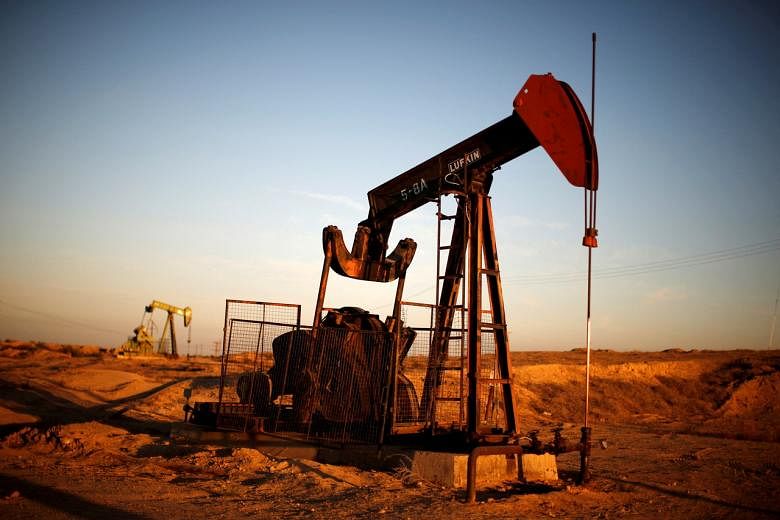SINGAPORE (BLOOMBERG) - Oil edged lower on Wednesday (Feb 23) after United States President Joe Biden unveiled sanctions that avoided the harshest restrictions against Russia, while progress in Iran nuclear diplomacy offered to bring some relief to tight global energy markets.
West Texas Intermediate crude for April slipped 0.1 per cent in New York, after rising 1.9 per cent on Tuesday while global benchmark Brent stopped 50 US cents shy of US$100 a barrel before paring gains.
Mr Biden announced sanctions targeting Russia's sale of sovereign debt abroad and the country's elites, responding to what he described as the start of Russian President Vladimir Putin's invasion of neighbouring Ukraine.
Mr Biden said sanctions will increase if Russia "continues its aggression", calling the penalties he announced a first step, but stopped short of the devastating measures that the US and its allies have threatened.
That has led to a pause in oil's blistering rally, which has also been driven by output not keeping up with rising demand. Opec+, or the Organisation of the Petroleum Exporting Countries and its allies, continues to only drip-feed additional supply to the market, and several key members of the production cartel see no need to accelerate output increases.
"There's still considerable risk that oil prices may surge above US$100 a barrel" if the situation in Ukraine escalates, Mr Vivek Dhar, director of mining and energy commodities research at Commonwealth Bank of Australia, said in a research note.
"Oil markets are particularly vulnerable at the moment given that global oil stockpiles are at seven-year lows and that Opec+ spare capacity is being questioned due to disappointing Opec+ supply growth."
The US measures come after Mr Putin earlier this week recognized two self-proclaimed separatist republics in eastern Ukraine as independent, a dramatic escalation in the stand-off. Mr Putin has denied Russia intends to invade Ukraine. A meeting between the top US and Russian diplomats was canceled while the Biden administration said it is shifting its forces already based in Europe and sending additional troops to the Baltic states.
Global energy markets can expect a limited effect from the additional sanctions against Russia, according to a senior US State Department official. The official, who was granted anonymity to discuss a sensitive matter, told reporters on Tuesday that the goal was to inflict economic damage on Russia without upsetting energy markets.
Meanwhile, the potential return of Iranian barrels if the nation reaches a nuclear deal with world powers also weighed on overall sentiment. European and Russian diplomats agreed that negotiations over Iran's nuclear programme have reached the endgame. Any restoration of Iranian supply would help ease global tightness as Opec+ struggles to meet output goals.
A decision is likely this week over whether the landmark agreement can be revived, according to Twitter statements by the French, Russian and British negotiators in Vienna. Sides are expected to convene a Joint Commission meeting, where resolutions are finalised, later in the week, according to a European official who asked not to be identified in line with diplomatic rules.
Iran was one of Opec's biggest crude producers before the US withdrawal, and many traders expect that if sanctions are lifted, it will be able to boost daily exports by about one million barrels within just a matter of months.
In addition to geopolitical tensions, oil markets remain severely backwardated, a bullish pattern that reflects tight supply. Brent's prompt spread - the difference between its nearest two contracts - on Tuesday surged to the strongest in a decade as part of a broad strengthening of the global benchmark's curve.

